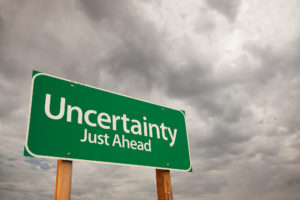 In preparing for the fall, colleges have been presenting a wide variety of scenarios. Since late April, the Chronicle of Higher Education has been tracking the fall plans of nearly 1,125 colleges. As of July 13, 57% of those colleges are planning to have students on campus and offer classes in-person, 29% are planning a hybrid of in-person and online classes, 9% are planning for online classes only, 4.3% are considering multiple options, and 1.7% have yet to decide.
In preparing for the fall, colleges have been presenting a wide variety of scenarios. Since late April, the Chronicle of Higher Education has been tracking the fall plans of nearly 1,125 colleges. As of July 13, 57% of those colleges are planning to have students on campus and offer classes in-person, 29% are planning a hybrid of in-person and online classes, 9% are planning for online classes only, 4.3% are considering multiple options, and 1.7% have yet to decide.
Although most colleges have announced their plans, for many students and parents, the question remains, “What will this fall really look like?”
While there are still many unknowns, one thing seems clear: students are not going to have a traditional college experience. Even if classes are held in-person, dining halls may only allow students to get food to go, clubs may meet on Zoom, and there will be no large campus events (concerts, football games, parties, etc.). In June, a professor at the University of South Carolina, Beaufort, wrote in Inside Higher Ed, “What’s needed to make a campus safe right now is completely at odds with the iconic experience that people crave.” She criticized colleges for making decisions based more on their bottom line than on the health and safety of students, faculty, and staff.
As colleges make their plans, faculty at some institutions are pushing back, signing petitions for a variety of reasons, such as: they have not been included in administrators’ discussions and decision-making; they have not been given a choice between teaching in-person or online or are only being allowed to teach online if they are above a certain age or have specific health conditions; their campuses are “strongly encouraging” everyone to wear masks rather than requiring people to do so.
And what will be expected of students? They may have to get frequent COVID-19 tests, submit to contact tracing, and/or wear masks whenever they are not in their dorm rooms. Some colleges are going to require students to sign a contract stating that they will practice social distancing in common areas (University of Vermont) or will refrain from participating in off-campus social gatherings (University of Pennsylvania). Yet, is it realistic to expect 18-22 year-olds to abide by such rules? It’s natural for college students to want to hang out in each others’ dorm rooms, have meals together, go to parties, etc. What will college be without these rituals?
Furthermore, who is going to monitor students’ behavior? Will professors have to check students for proper mask wearing as they enter the classroom? Will resident advisors be expected to walk the halls, making sure no one is in a dorm room besides the student(s) assigned to it? Or will students be left to police each other? The University of Miami is going to hire student ambassadors to help enforce the rules. Gee, I bet those kids are going to be really popular.
What about colleges in states like Florida, Texas, and California, which have had huge increases in COVID-19 cases in recent weeks? Will local and state health officials allow these schools to re-open?
Finally, what if, despite college administrators’ careful planning, there are campus outbreaks? Will colleges be forced to close and send everyone home like they did in the spring?
The truth is that there is simply no way to know what’s really going to happen on college campuses this fall until it actually happens. Therefore, I will leave you with this old adage: “Hope for the best, but prepare for the worst.”





